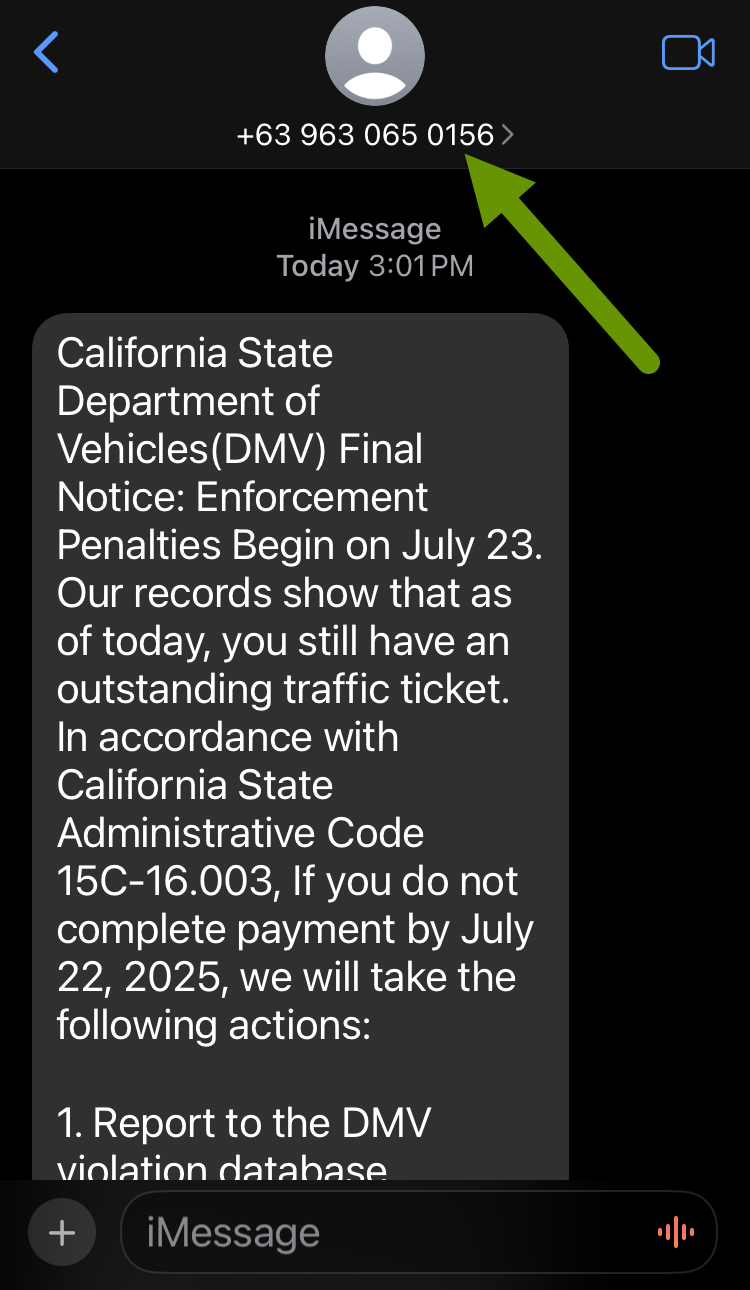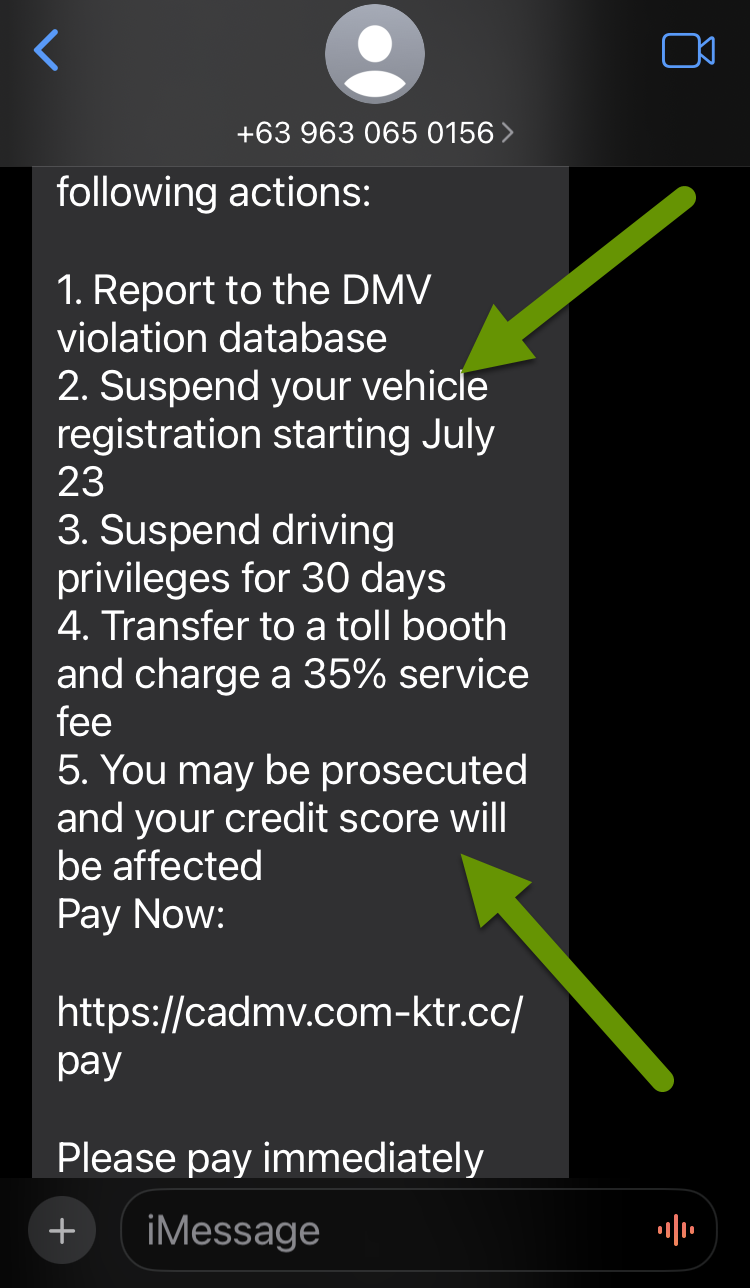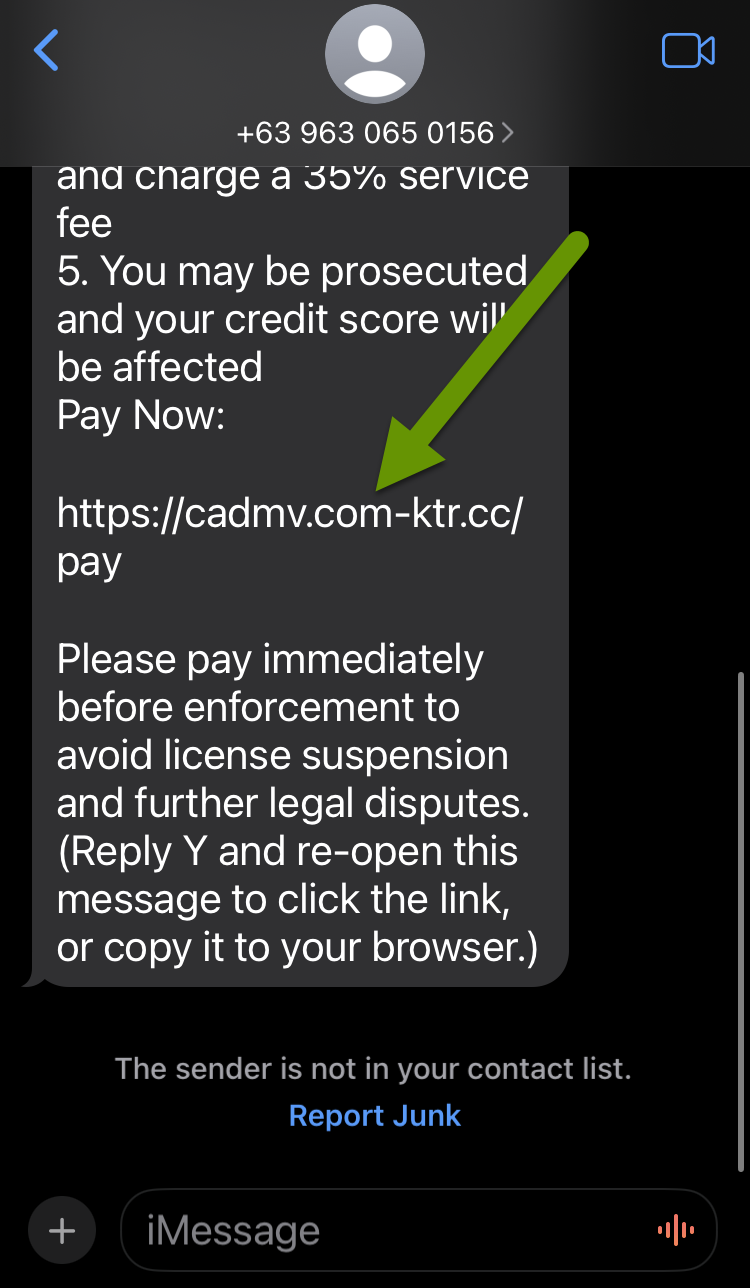Security Warning: How to Know that Message is Not a Legitimate Message from DMV
New scams are released every day, several times a day, and this can make it really challenging to keep track of what is real and what is not. Additionally, there are so many things coming at us - both real and scam - that at times it can be difficult to stop and think about each thing because we are exhausted by alerts. Scams come at us in our email accounts, via text message, on web browsers and via phone calls. The problem is, so do legitimate communications! This means we are constantly filtering through everything coming at us and trying to determine what is real and what should be deleted/blocked/ignored.
This post discusses a recent security threat where people pretend to be the DMV and how you can tell the message is a scam.
Security Warning: How to Know that Message is Not a Legitimate Message from DMV
There are often common things you can look for that scammers do when creating messages or contacting you that gives them away. There can also be unique things they implement that you might not have thought of. The purpose of this post is to provide information about how you can tell this most recent scam is in fact a scam.
In the message from DMV, one of the very first clues that the message is a scam is the number it was sent from. This number has a country code as a prefix (+63) before the number. When looking up this country code, we find that it belongs to the Philippines and it would not make sense for DMV to route their messages through the Philippines before coming to me.

The second thing that is a huge red flag is the tone of the message. This message is threatening "enforcement penalties". This is meant to get your attention right away, to cause panic, and to push you into making a quick decision without stopping to question if this is even real. Using emotion to trick you into acting quickly is one of the most common tactics employed by scammers. This emotion is often fear based on threats.
Another red flag in this message is the random references to state administrative codes that only those working in this field would understand or be familiar with. This is another tactic to employ emotion from you, in this case they are using this to sound official so you trust the message.
As we scroll down the message, we see the same tactics used again and again. By listing out all the ways you are going to be "penalized", they are creating fear. Nobody wants to have their vehicle registration suspended, to lose their license, or have their credit score be affected. Threatening each of these and more can cause panic or fear which is what they are hoping to accomplish. Once they get you to a place of fear, you are no longer thinking clearly and are less likely to question if this message is legitimate.

Next we see that they have been nice enough to include a link for us to get all caught up so we can avoid all the things they have threatened us with. They even reinforce that if we pay immediately we can avoid all the nasty things they have listed. Unfortunately, if you look at the link provided, it looks nothing like a DMV domain. This is another really important clue to the fact that this message is a scam. Not only is that not the ordering of the California DMV domain, but it is a .com not a .gov.
California's legitimate DMV domain is dmv.ca.gov, so both the domain type and ordering differ as you can see in the image below.

This most recent scam threatens things that none of us want to suffer: impacted credit score, loss of license, vehicle registration suspension, prosecution and additional outrageous fees. However, there are also many clues in this message that let us know this is 100% a scam. The biggest takeaway from this scam is to remember to pay attention any time something comes at you and it is trying to play on your emotions to get you to make a quick decision. Decisions made under these circumstances are almost always regretted as they turn out to be a scam. Slowing down to protect yourself, and sharing information with others you know who might also be targets, can limit the success of these scammers.
As always, slowing down to double-check the validity of a message is critical in protecting you, your information, and your finances!

